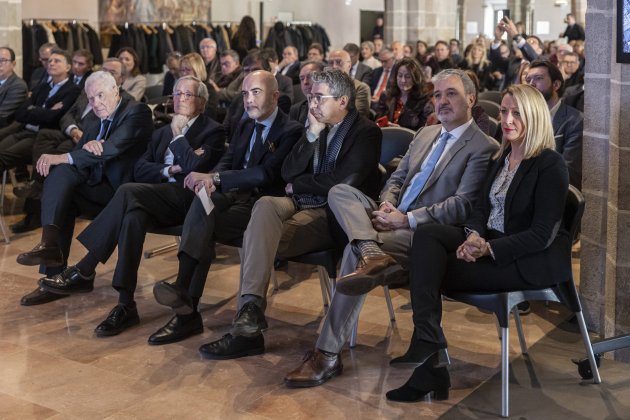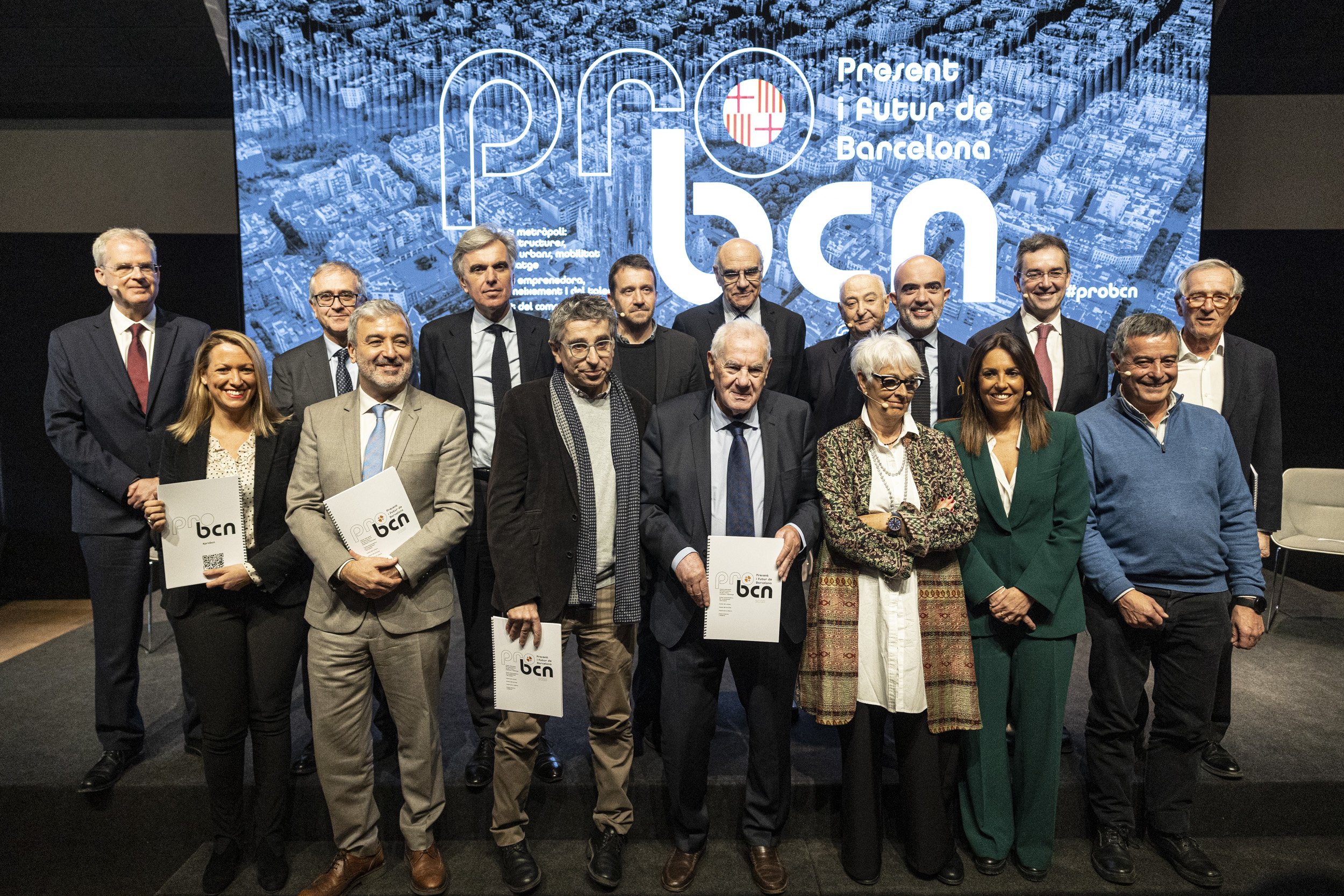With less than three months to go until the 2023 municipal elections, it is still unknown who will take home the jewel in the crown, Barcelona. The polls do not, for now, give a clear victory to any of the four main candidates in the Catalan capital. But whoever wins on May 28th, key economic and social interest groups have already made it clear what their priorities will be: nearly a hundred mostly-economic entities in Barcelona have drawn up an imposing document of 74 pages in which they have collected the main demands from their areas of activity on the present and future of the city. The project, under the title PRO BCN 2023, is structured around a handful of main thematic areas: firstly, infrastructure, mobility, and housing; then, entrepreneurship, knowledge and talent; and as four separate themes: commerce; tourism; culture; and inclusion.
The conclusions generated massive expectations, with the presence of around two hundred people at the Llotja de Mar. Among them, protagonists of the economic world, such as employers groups leaders Josep Sánchez Llibre (Foment del Treball) and Jaume Guardiola (Cercle d'Ecònòmia) and the president of the Chamber of Commerce, Mònica Roca. But also from the political world, to whom the gathering was mainly targeted. The organizers underlined the proximity of the municipal elections and remarked that the document is available to candidates with the desire to "provide value to the political forces that aspire to govern". And this is how most of the mayoral candidate received it. Xavier Trias (ERC), Ernest Maragall (Junts), Jaume Collboni (PSC) and Daniel Sirera (PP) occupied the front row in the audience, which, however, had one notable absence: the current mayor Ada Colau (BComú) did not come but in her place sent deputy mayor Jordi Martí.

74 pages of conclusions
To develop this sizable project, the organizers sent a questionnaire in the form of an open list to hundreds of social and economic entities, and subsequently worked with the respondents in each of the six thematic areas, to summarise that area's answers for three big questions: what is the city we aspire to, what is the city we would like to have now in the short term, and what city do we NOT identify with. The result is a 74-page document divided into six sections.
Some of these six sections take positions with respect to the big issues of the Catalan budget negotiations in recent months, and which have divided the PSC and the ERC-led government. Thus, the infrastructures section of the document asks to "close on a positive note" the debate about the Barcelona airport through "dialogue" with the operator AENA to thus find a solution that has a territorial and environmental fit. In any case, the consensus in this section is for an "expanded" airport that allows it to be an intercontinental hub and of international relevance. Mention is also made of the B-40 and A-7 motorways, and the widening of the N-II, demanding the improvement of major infrastructures that offer internal connectivity for the metropolis and vertebral connection with the rest of Catalonia and the Mediterranean. And this chapter of the document also request the completion of the Mediterranean Rail Corridor "as a determined committment to structure connectivity" with Europe.
In terms of housing, the authors advocate the creation of "a minimum" of 150,000 publically-protected apartments which are outside the "rules of the free market", a figure which is equivalent to 20% of the total housing stock, in order to resolve the situation of more vulnerable groups. This same collective also asks for an "end to the absurdity of homelessness", but also for the "eradication of the anomaly of squatting". In terms of mobility, the document asserts that public transport must be a "fundamental axis" in the metropolis, articulated through bus, metro and Rodalies train networks, but also guaranteeing the "fluid circulation of all types of vehicles". There is also reference to the expansion of the charging network for electric vehicles, in addition to the decarbonisation of "last mile" logistic deliveries.
In commerce and tourism - sections of the document mostly authored by those within the sectors themselves - the report asks for the "enhancement of terraces" for bars and restaurants as a genuine expression of Mediterranean character, and to promote opening on Sundays and public holidays due to Barcelona's tourist influx. Along these lines, it is requested to "continue generating cultural, leisure and entertainment offers for visitors" during the low season. In any case, it says, the tourism must be of "quality" so that, thanks to the visitor economy, it "develops excellence in key sectors of the economy and the welfare state". In the field of security, there is talk of the collaboration between Barcelona's Guardia Urbana police and the Mossos d'Esquadra and their patrolling of the streets "to deter criminals and provide security to citizens".
A group of seven driving entities assumed the coordination of the project, avoiding strong personal protagonisms or connections with specific political options. The more economically-oriented sections of the document were led by the Cerdà Institute, Rethink BCN, Tech Barcelona, Barcelona Oberta, and Turisme de Barcelona. The last two sections, on culture and inclusivity, were respectively guided by the Catalonia Theatre Companies Association, and the children-centred NGO, Casal dels Infants.
From the stage, Barcelona Chamber of Commerce economist Joan Ramon Rovira defined this initiative as a "container of projects", since the opinions and proposals of a variety of representative entities of Barcelona have been collected. That is why the document is a "direct collection" of their demands and a genuine expression of collective demands. "There was nothing like this until now", he stressed, thanking the "selfless collaboration" of all the actors. All of them stressed the need to boost public-private collaboration between administrations and companies to boost the city. A Barcelona that must in any case have a metropolitan perspective and that helps to respect the three basic axes of sustainability, from a social, economic and environmental point of view.

